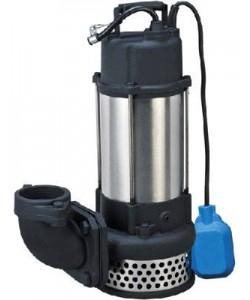Sewage Pump

Sewage Pump
- A sewage pump is a device which can able to transfer sewage untreated wastewater and solids from one location to another. These pumps are mostly used in private homes, buildings or apartments and municipal wastewater treatment plants.
Types of Sewage Pump
Effluent Pump - effluent pumps are the pumps which most often uses in small on-site system. Effluent pumps don’t have to handle sewage solids so that Effluent pump can pump higher levels and more efficient than the other sewage pumps.
Solids Handling Pump - Solids Handling pumps are also called sewage ejector pumps made to pump raw sewage. Solids-handling pumps should only be used where raw sewage has to be pumped.
Grinder Pump - Grinder Pumps can pump raw sewage; it's much like a solid-handling pump. The only difference is that the grinder pump has rotating blades.
Advantages of Sewage Pump
Able to prevent flooding damage - One can quickly have 15 inches of floodwater covering the floor and damaging almost everything inside, during the heavy rains trigger a flood of water into the basement. This disaster can be averted easily, with a working sump pump.
Will reduce the risk of fire - in the basement, the water will short-circuit the appliances; such as water heaters, laundry machines, and heating systems. So, water can also create a fire danger, aside from ruining these valuable appliances. A sump pump will always keep the water from threatening equipment that could trigger household fires.
Able to reduce the threat of mildew and mold - In stagnant pools, continual dampness inside a basement from the water will contribute to the growth of mildew and mold. Not only they are health problems but are these both damaging to building material as well.
Comments